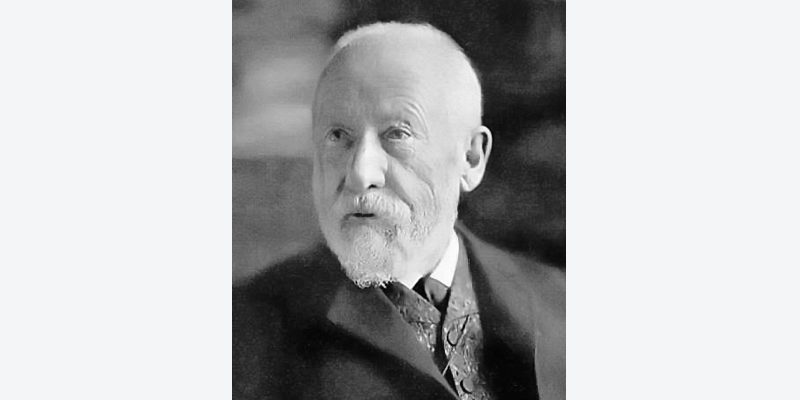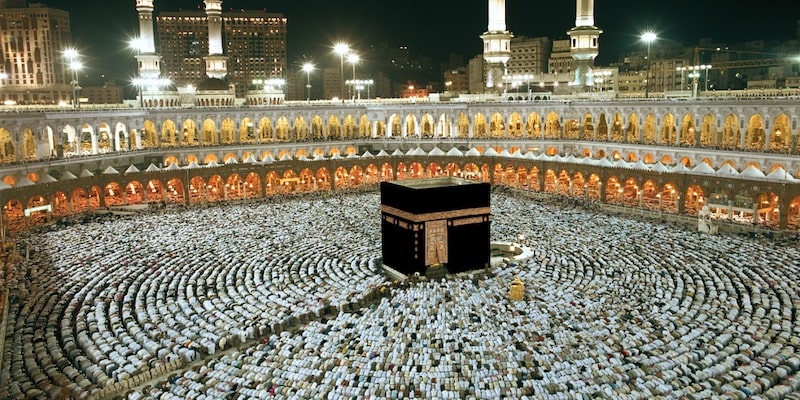We explain what worldview is and what the role of education and religion is in worldview. Also, some examples.

Worldview is the way a society interprets the world.
What is worldview?
The worldview It is the vision of the world that a society has at a certain time or moment in its history. That is, it is the way a culture sees and interprets the world. It includes the set of beliefs, values, attitudes and concepts that a person or a group of people have about the nature of the world and their place in it.
The concept of worldview It was introduced by the philosopher Wilhelm Dilthey in his book Introduction to the spiritual sciencespublished in 1883. Since then, it was used by numerous social science researchers.
The term “worldview” comes from the German word Weltanschauungwhich is made up of two terms: Weltwhich means “world,” and anschauenwhich means “observe” or “look.”
See also: Religion
Aspects of worldview

The worldview of a society or culture involves different ideas from which the world is interpreted and understood. These ideas include different aspects:
- Metaphysical aspects. The worldview of a society has certain ideas about the nature of reality, about what exists and what does not exist.
- Epistemological aspects They involve beliefs about how knowledge is acquired and what methods are valid for obtaining it.
- Ethical and moral aspects. Based on its worldview, culture establishes values and norms about what is right and wrong, and determines the forms of social and individual behavior.
- Anthropological aspects. They imply a vision about human nature, its origin and its purpose.
- Teleological aspects They integrate concepts and ideas about the purpose and meaning of life and the universe.
The worldview according to Wilhelm Dilthey

Wilhelm Dilthey, a 19th-century German philosopher, developed a concept of worldview that had great influence on philosophy and the human sciences. For Dilthey, worldview is the result of the interaction between individual experience and cultural and social influences He argued that people perceive the world through a subjective lens, shaped by their personal experiences, their cultural context, and their historical traditions.
According to Dilthey, the experience of each being has its origin in the set of principles and values possessed by the society where it was formed. He also stated that all the relationships, sensations and emotions that were experienced in that same environment will determine the individual worldview of that person in the future.
An individual's worldview is made up of the different perceptions, conceptualizations and evaluations that he or she makes or has about his or her environment. Dilthey argued that worldview not only informs our beliefs and values, but also shapes our understanding of the past and our interpretation of the present, providing a vital frame of reference for human existence.
It is also from it that people develop their own definitions of daily issues, for example, on basic issues such as “help”, “politics” and “family”, among others.
See also: Paradigm
The role of education in worldview

An individual's worldview depends on his or her social relationships. In this sense, Education is a fundamental process in creating people's worldview since it influences the beliefs, values and perspectives they have of the world in which they live. In turn, the worldview intervenes in educational processes.
Education and worldview are linked in different ways:
- Transmission of beliefs and values. Education transmits the beliefs and values of a culture or society to future generations. Educational systems often reflect the predominant worldview of a society, teaching ethical, moral, and philosophical concepts that reinforce and reproduce that worldview.
- Construction of perspectives. Education shapes the way individuals perceive the world and relate to it. Through learning various disciplines, students develop a broader understanding of reality and gain different perspectives on topics such as history, science, religion and culture, which influences their worldview.
- Development of critical thinking. A quality education encourages critical thinking and the ability to question established ideas. This can lead to a deeper examination of one's worldview and the exploration of other perspectives, enriching and expanding one's understanding of the world.
- Social transformation. Education can be a powerful tool to challenge and change existing worldviews. Through education, people can question social injustices, challenge prejudices, and work toward building a more inclusive and equitable society, which can lead to changes in collective worldviews.
See also: Education
The role of religion in the worldview

religious beliefs provide a comprehensive framework for interpreting the world and have a great influence on the beliefs, values and behaviors of individuals and societies.
Religion offers answers to fundamental questions about the nature of reality, the origin of the universe, and the purpose of life. This way, the metaphysical and existential vision of believers is configured. For example, Christianity teaches that God created the world and that human beings have a divine purpose, thus deeply influencing Christians' worldviews about the origin of the world and the universe.
Furthermore, religions establish ethical and moral codes that guide the behavior of their followers defining what is considered right and wrong. These norms not only affect individual decisions, but can also influence legislation and social practices. For example, in Saudi Arabia, laws are determined by Sharia (which is Islamic religious law) and alcohol consumption is punished as a crime.
Examples of worldview
Worldviews are deeply influenced by cultural, religious, scientific and philosophical factors, and offer diverse ways of interpreting reality and guiding human behavior. These perspectives encompass different aspects of life, including the nature of reality, sources of knowledge, ethical principles, understanding of human nature, and the purpose of existence.
Three worldview examples are detailed below:
Scientific worldview
The scientific worldview It is based on the belief in empirical observation, experimentation and reason as the main sources of knowledge. In this way, rational principles are established to understand the world, its origin, the future of things and the place of people.
The following aspects can be defined in the scientific worldview:
- Metaphysical aspect. The universe is composed of matter and energy, governed by natural laws that can be discovered and understood.
- Epistemological aspect Knowledge is acquired through observation, experimentation and application of the scientific method.
- Ethical and moral aspect Ethical decisions are based on rational principles and can be informed by scientific knowledge.
- Anthropological aspect. Human beings are the result of evolution and share a common history with other forms of life.
- Teleological aspect. There is no inherent purpose in the universe; The purpose of life can be defined by individuals through their own experiences and choices.
An applied example of this worldview: a scientist researching a cure for a disease relies on experimentation and empirical evidence to develop treatments, trusting in the human ability to understand and manipulate the natural world.
Christian worldview
The Christian worldview It is centered on the belief in a creator God, the divinity of Jesus Christ and the authority of the Bible.
The following aspects can be defined in the Christian worldview:
- Metaphysical aspect. God created the universe and everything in it; There is a spiritual reality beyond the physical world.
- Epistemological aspect Knowledge is obtained through divine revelation (the Bible) and reason guided by faith.
- Ethical and moral aspect Moral standards are based on God's commandments, as revealed in the Bible.
- Anthropological aspect Human beings are created in the image of God, with a divine purpose and a sinful nature that needs redemption.
- Teleological aspect The purpose of life is to love and serve God, live according to his will, and achieve eternal salvation.
An applied example of this worldview: A person with a Christian worldview can dedicate their life to the service of others, following Jesus' commandments of love and compassion, and actively participating in their religious community.
Andean indigenous worldview
The Andean indigenous worldview is based on a deep connection with nature and a holistic understanding of the universe.
The following aspects of the Andean indigenous worldview can be distinguished:
- Metaphysical aspect. Everything in the universe is interconnected; Natural elements have life and spirit.
- Epistemological aspect. Knowledge is obtained through observation of nature, ancestral wisdom and community practices.
- Ethical and moral aspect. Ethical standards are based on respect and harmony with nature and the community.
- Anthropological aspect. Human beings are an integral part of the cosmos, with a responsibility towards the earth (Pachamama) and all its beings.
- Teleological aspect. The purpose of life is to maintain balance and harmony with nature and the community.
An applied example of the indigenous Andean worldview: an Andean community can practice agriculture in a sustainable way, performing rituals of gratitude to the land and making collective decisions that ensure the well-being of all its members and the natural environment.
References
- Arcila, RR (1998). Worldview, thought and culture. Eafit University Magazine34(111), pp. 33-42.
- Sire, J. (2004). Worldview Definitions: from Dilthey to Naugle. Naming the Elephant. Worldview as a Concept. VP Academic.
- Vidal, C. (2008). What is a worldview? In H. Van Belle and J. Van der Veken (Eds.), Nieuwheid denken. De wetenschappen en het creatieve aspect van de werkelijkheid. Acc.





